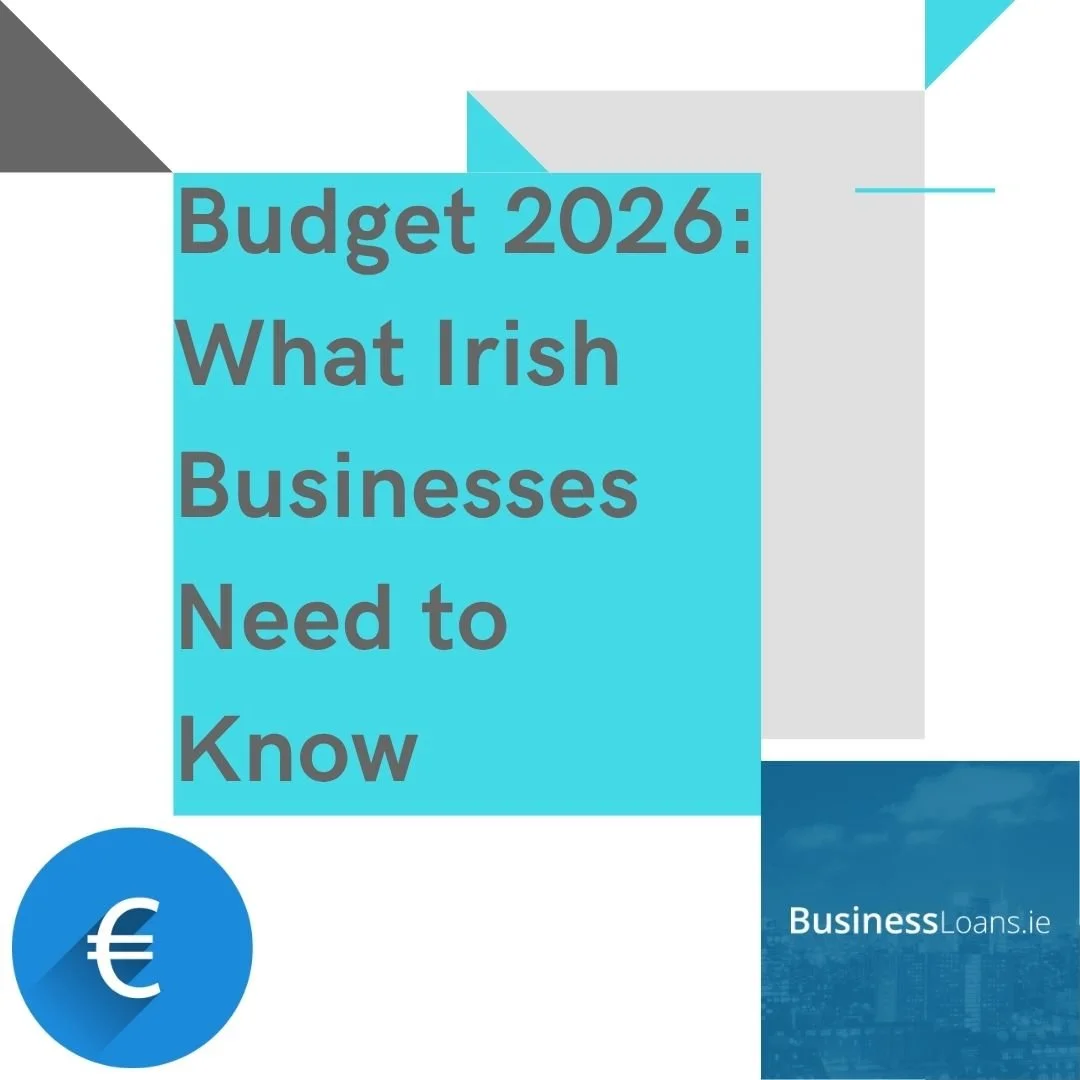The Government’s 2026 Budget, announced on 7 October 2025, focuses on stability and targeted support rather than major reform. While income tax rates remain unchanged, there are several new measures and extensions that will affect how Irish businesses plan, invest and manage cash flow over the coming year.
Below is a summary of the key changes and what they could mean for business owners across Ireland.
Headline Measures
Income and Employment Taxes
There are no changes to income tax rates, credits or thresholds. The previously legislated PRSI increases took effect on 1 October 2025, with employee and self-employed contributions rising to 4.2 percent and employer contributions to 11.25 percent.
The 2 percent USC rate band has been widened to €28,700. Reliefs such as the Rent Tax Credit and the income tax exemption for micro-generated electricity sales (up to €400) have been extended to 2028. Mortgage interest relief continues on a tapered basis until the end of 2026, and benefit-in-kind relief for electric vehicles has been extended until 2029.
The Special Assignee Relief Programme (SARP) has been renewed for five years, with the qualifying income threshold raised to €125,000. The Key Employee Engagement Programme (KEEP) has been extended to 2028, and the Foreign Earnings Deduction (FED) has been increased to €50,000.
The new auto-enrolment pension scheme will begin on 1 January 2026, requiring matched employer and employee contributions of 1.5 percent, with gradual increases over time.
Business and Corporate Tax
The Research and Development (R&D) tax credit rises from 30 to 35 percent, and the first-year payment threshold increases to €87,500. The participation exemption for foreign dividends has been broadened, while incentives for the film and digital games sectors have been extended, pending EU approval.
A new 1 percent stamp duty exemption applies to share purchases in Irish-listed companies with a market capitalisation under €1 billion. Accelerated capital allowances for energy-efficient equipment and gas vehicles have been extended until 2030.
Property and Construction
Developers can now claim a 125 percent corporation tax deduction on qualifying apartment construction costs, up to a maximum of €50,000 per unit. The Living City Initiative, which supports regeneration in designated urban areas, has been extended to 2030 and expanded to include older residential and commercial buildings.
A new Derelict Property Tax will replace the Derelict Sites Levy from 2027, expected at a similar 7 percent rate. Income tax relief for landlords retrofitting properties is extended to 2028, and the number of eligible properties rises from two to three.
Indirect Taxes and VAT
The VAT rate on new apartments drops from 13.5 to 9 percent from 8 October 2025 until 2030. From July 2026, a 9 percent VAT rate will apply to food, catering and hairdressing services. The 9 percent VAT rate on gas and electricity is extended to 2030.
Carbon tax increases to €71 per tonne of CO₂ from October 2025 for auto fuels, and from May 2026 for other fuels. E-invoicing will be phased in for business-to-business transactions. Vehicle Registration Tax relief for electric vehicles continues until the end of 2026.
What It Means for Irish Businesses
Budget 2026 is steady and pragmatic. It rewards businesses that plan ahead, particularly those investing in innovation, construction, and sustainability.
The higher R&D tax credit strengthens the case for companies investing in technology or product development. Many of these projects require upfront capital before the benefits are realised, which makes access to flexible working capital increasingly important.
In construction and property, the new 125 percent deduction and lower VAT rate on apartments are designed to accelerate housing delivery. These measures are likely to increase project activity and with it, the need for short-term funding to manage cash flow through each stage of development.
For employers, higher PRSI rates and the introduction of auto-enrolment pensions will increase payroll costs over time. Maintaining adequate liquidity will be essential to manage these obligations without disrupting operations.
With extended supports for energy-efficient equipment and green investments, businesses that upgrade their infrastructure or reduce energy use can continue to benefit. However, these projects often require upfront spending that can be funded efficiently through short-term or asset-based lending.
How BusinessLoans.ie Can Support Irish SMEs
At BusinessLoans.ie, our focus is helping Irish business owners access the right funding quickly and with minimal paperwork. We work with a wide range of non-bank lenders, offering solutions for working capital, equipment and asset finance, property development, and business expansion.
Budget 2026 brings opportunities for those ready to invest in growth or efficiency. Whether you’re upgrading equipment, managing payroll costs, or financing a new project, the right funding partner can make the difference between delaying plans and moving forward confidently.
Final Thoughts
Budget 2026 is not about sweeping reform but about building momentum. It rewards companies that innovate, invest, and plan ahead. For many Irish SMEs, success will depend on maintaining cash flow and having access to flexible finance as new opportunities arise.
If you’re preparing for growth in 2026 and want to explore funding options for your business, call the BusinessLoans.ie team on 01 55 636 55 or APPLY HERE.
